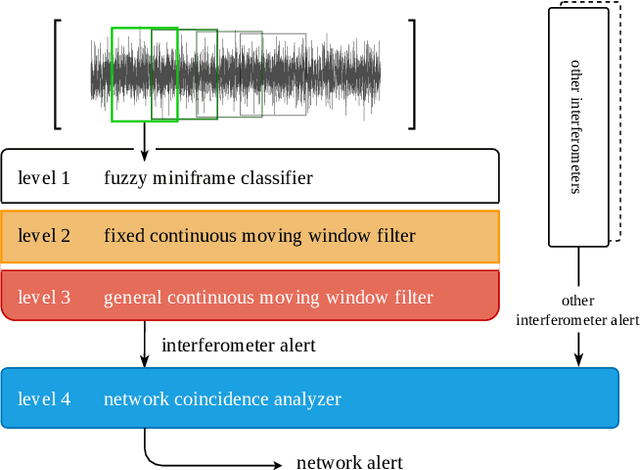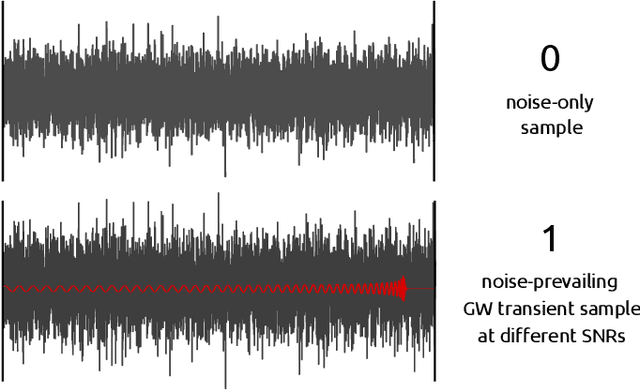Francesco Pio Barone
A Novel Multi-Layer Modular Approach for Real-Time Gravitational-Wave Detection
Jun 13, 2022



Abstract:Advanced LIGO and Advanced Virgo ground-based interferometers are poised to probe an unprecedentedly large volume of space, enhancing the discovery power of the observations to even new sources of gravitational wave emitters. In this scenario, the development of highly optimized gravitational wave detection algorithms is crucial. We propose a novel layered framework for real-time detection of gravitational waves inspired by speech processing techniques and, in the present implementation, based on a state-of-the-art machine learning approach involving a hybridization of genetic programming and neural networks. The key aspects of the newly proposed framework are: the well structured, layered approach, and the low computational complexity. The paper describes the basic concepts of the framework and the derivation of the first three layers. Even if, in the present implementation, the layers are based on models derived using a machine learning approach, the proposed layered structure has a universal nature. To train and test the models, we used simulated binary black hole gravitational wave waveforms in synthetic Gaussian noise representative of Advanced LIGO sensitivity design. Compared to more complex approaches, such as convolutional neural networks, our framework, even using the simple ground model described in the paper, has similar performance but with a much lower computational complexity and a higher degree of modularity. Furthermore, the underlying exploitation of short-term features makes the results of the new framework virtually independent against time-position of gravitational wave signals, simplifying its future exploitation in real-time multi-layer pipelines for gravitational-wave detection with second generation interferometers.
 Add to Chrome
Add to Chrome Add to Firefox
Add to Firefox Add to Edge
Add to Edge